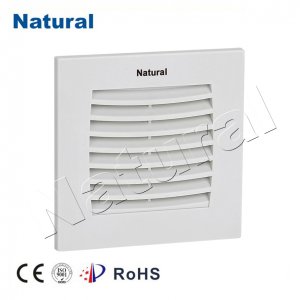In today’s technologically driven world, electrical panels play a critical role in powering various devices and systems. These panels house an intricate network of wires, switches, and circuit breakers that distribute electricity throughout buildings and facilities. However, their optimal functioning can be compromised if they are not adequately maintained. One often-overlooked aspect of electrical panel maintenance is the installation of fan filters. In this article, we will explore the significance of fan filters in enhancing the efficiency and longevity of electrical panels.

Understanding Electrical Panels Before delving into the importance of fan filters, it’s essential to grasp the fundamental role of electrical panels. These panels serve as the central hub for electrical power distribution, controlling and protecting circuits to ensure a safe and reliable power supply. Electrical panels can be found in a variety of settings, from residential homes to industrial facilities, and their proper functioning is crucial for uninterrupted power flow. The Challenge of Dust and Debris Electrical panels are often located in less-than-ideal environments, such as utility rooms or mechanical spaces. Over time, dust, dirt, and other airborne particles can accumulate within the panel. These contaminants pose a significant risk to the electrical components inside. Dust and debris can: Reduce Efficiency:Accumulated dust can hinder the proper functioning of switches, circuit breakers, and other critical components, potentially leading to overheating or even failure. Increase Maintenance Costs:Dirty panels require more frequent cleaning and maintenance, increasing operational costs over time. Compromise Safety:A buildup of dust and debris can increase the risk of electrical fires and other safety hazards. The Role of Fan Filters Fan filters are a simple yet effective solution to combat the issues caused by dust and debris in electrical panels. These filters are designed to trap and remove particles from the air before it enters the panel, thus preventing contamination of sensitive components. Here are some key benefits of installing fan filters: Improved Cooling:Electrical panels generate heat during operation. Fan filters ensure that the airflow remains unobstructed, allowing for efficient cooling of the components, which is vital for their longevity and performance. Reduced Maintenance:With fan filters in place, the accumulation of dust and debris is significantly reduced. This means less frequent cleaning and maintenance, saving both time and money. Enhanced Safety:Fan filters act as a barrier against foreign objects, reducing the risk of electrical faults, short circuits, and fires. Extended Lifespan:By keeping the interior of the electrical panel clean and free from contaminants, fan filters contribute to the overall lifespan of the panel and its components. Choosing the Right Fan Filters When selecting fan filters for your electrical panel, it’s essential to consider the specific requirements of your application. Factors to consider include the size of the panel, the level of environmental contamination, and any industry-specific regulations or standards. Fan filters come in various types, including disposable filters and reusable filters with washable media. It’s crucial to choose filters that are compatible with your panel’s design and the level of filtration required. Conclusion Electrical panels are the heart of electrical distribution systems, and their proper maintenance is essential to ensure the reliability and safety of power supplies. Fan filters offer a cost-effective and practical solution to combat the challenges posed by dust and debris, enhancing the efficiency and lifespan of electrical panels. By investing in quality fan filters and incorporating them into your maintenance routine, you can ensure that your electrical panels continue to operate at their best, providing a stable power supply for years to come.